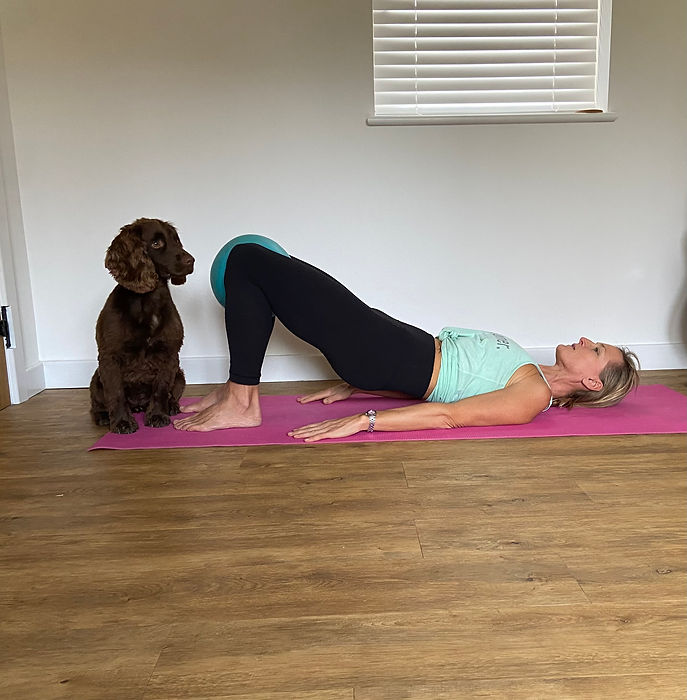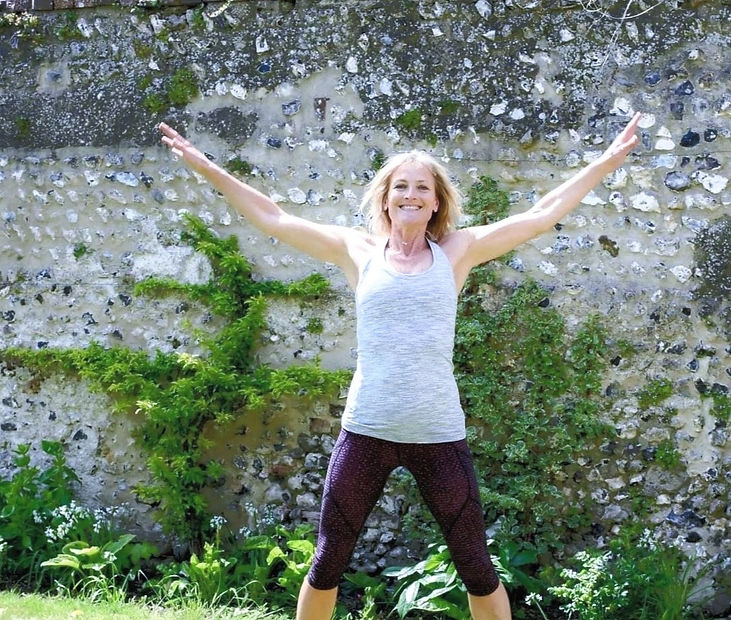How Can I Help?
Self Care in Menopause
Menopause tummy, achy joints, loss of bone density, low energy, lack of motivation, poor sleep, anxiety, incontinence, sugar cravings .... ?I
Self care in menopause is essential for maintaining physical, emotional and mental wellbeing.
Prioritising practices like regular exercise, balanced nutrition, reducing toxic load, restful sleep and mindfulness can help manage symptoms such as fatigue, mood swings and hormonal imbalances. By making self care a priority, you not only improve your quality of life, but also cultivate resilience and confidence to thrive during this stage of life.
But where do you start?

The Total Solution
A Happier Healthier You
My approach is simple and realistic:
• Movement as Medicine: Whether it’s a Pilates class, a gentle stretch, or a walk in the countryside, movement is essential for physical and mental health. Join my weekly pelvic floor friendly Pilates classes on Zoom.
• Healthy Eating Without Guilt: I love food—delicious, nourishing, and sometimes indulgent! I believe in building healthy habits that make room for treats, like a slice of cake or a glass of wine. When it comes to eating, let me help you push the reset button and find what works for you.
• Specific Pelvic Floor Programmes: My 'Knowledge Not Pads' programme is designed to empower women with the tools to strengthen their pelvic floor and regain confidence in their bodies. Book my 6 week, evidence based programme today. It combines education, tailored exercises and practical guidance to help you take control of your pelvic health without relying on pads.
• One to One Pelvic Floor Support: Book a session with me and learn how to regain control.

Pelvic Floor Peri-Post Menopause
A Happier Healthier Pelvic Floor
Stress Incontinence, Urge Incontinence, Irritable Bladder, Prolapse, Pelvic Pain, Pain during Intercourse, Unsatisfying Sex and Faecal Incontinence are all signs that your Pelvic Floor is unhappy.
Our Pelvic Floor loves oestrogen and when levels of this hormone start to decline, the muscles can become weaker. As we age, our collagen production also decreases. Without this our pelvic floor loses it's bounce. And then those old injuries and scar tissue from childbirth and surgeries come back to bite us.
Add this to years of possibly poor breathing, bad posture, over or under exercising and overloading our pelvic floor and things can start to go wrong.
The cheering thing is that there is lots we can do to help ourselves improve those symptoms. 85% of incontinence issues can be reversed!

Pilates Classes
Pelvic Floor Friendly classes for all ages
Pilates and yoga are amazing for core strength. But many of the moves put huge pressure on the pelvic floor. If you suffer with leaks, pain or prolapse symptoms when you exercise, it is really important to take a step back and adapt the moves that cause this extra pressure. It does not mean you can never do them again, but you should probably not be doing them right now.
It's just the same as if you had a sore knee or hip when you exercised. You wouldn't just keep going. You'd seek help to find out what was causing the pain and do exercises and stretches to fix the problem. In my classes, I offer modifications and adaptions so that you can improve symptoms and have a better understanding of what is going on down there!
All classes are recorded so you don't have to be there live.
Chair Pilates -
Monday Mornings 9.30-10.30 am
Pelvic Floor Friendly Mat Pilates -
Wednesday Mornings 9.30-10.30 am
Clients who book a block of classes for £8 per week can attend both sessions and I send out the recordings for those who can't attend live.
Classes run throughout the year, and we usually don't stop during school holidays.
If you would like to book a one off taster session, the cost is £10.
Please email me for further details or to help you decide if the classes are right for you.